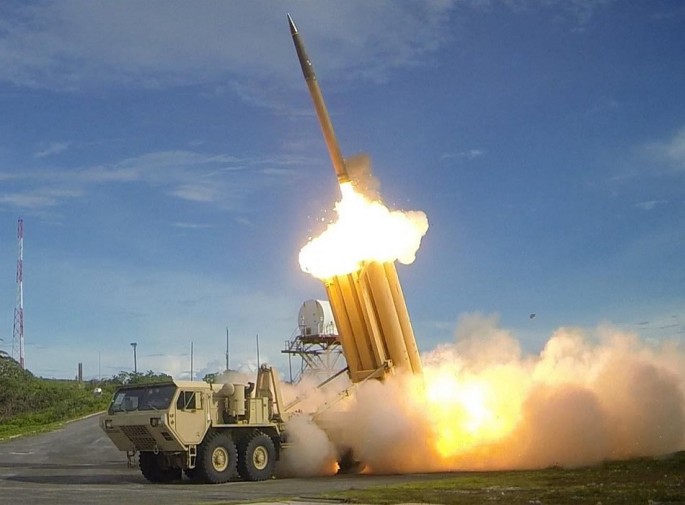As North Korea accelerated on its nuclear weapons development and rocker launch tests, the country also made clear that as a form of protection it is capable and willing to launch preemptive nuclear attacks against U.S. targets. And the United States' curt response to the threat - the planned deployment of THAAD interceptors in South Korea.
THAAD, according to Business Insider, is a Terminal High Altitude Area Defense battery that the Pentagon will soon deploy in South Korea. "It is America's most advanced and highly mobile missile-defense system," the report said, adding that Seoul soon hosting the defense weapons is to counter-balance the rising threat from Pyongyang.
As the same report noted, North Korea just logged its eighth Musudan missile test this 2016 and both U.S. and South Korean officials are not taking the development. While majority of the test firings conducted so far have been largely deemed as failure, the Nokor threat is for real given that the nation has been acknowledged with clear nuclear capabilities.
The North Korean's perfecting its rocket or missile capabilities, which could happen soon, should be worrisome. As it stands now, the Musudan missile can hit targets in Guam and Japan and it's no secret that the North Korean military is aiming for mobile mode of delivery - the use of submarine.
Again, if significant progress will be achieved soon by Pyongyang on launching Musudan missiles using submarines then the continental United States will be within the firing range.
"A submarine launch poses an especially grave threat since it could catch the United States and allies by surprise," one analyst was reported by Business Insider as saying.
The U.S. government through Defense Secretary Ash Carter has condemned the threat voiced out by North Korean officials recently. "Any attack on America or our allies will not only be defeated, but any use of nuclear weapons will be met with an overwhelming and effective response ... That's why we are adapting our force structure on the peninsula, most recently by agreeing as allies to deploy THAAD to defend against North Korean missile threats," Carter said.
The THAAD battery deployment, Business Insider said, will complement the existing Patriot defense system already in place in South Korea. The latter will form the country's upper tier defense while former will serve as wall for short-range missiles.
Carter said that South Korea equipped with THAAD will mean that the U.S. and its allies in the region will be steps ahead in the face of North Korea's nuclear threats.
Originally, the U.S. has planned for Seoul to be THAAD-ready by end of 2017 but defense strategist are looking to accelerate the deployment soonest, obviously in answer to North Korea's increasing nuclear capabilities, somehow making the country a more serious threat to America than Russia or China is.



























